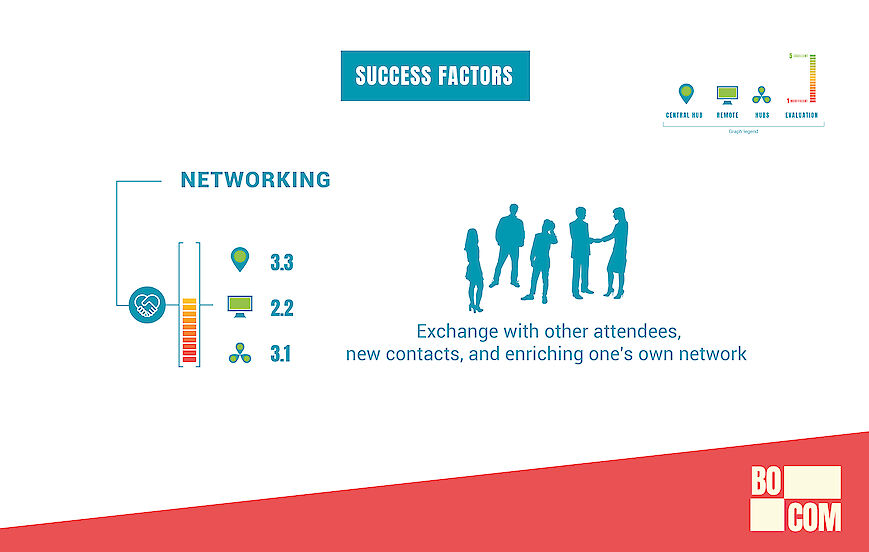Why face-to-face business events are key for unlocking hidden know-how
 © Jannoon028 / freepik.com
© Jannoon028 / freepik.com
Imagine an iceberg: What we see above sea level might look massive, however, the bulk of what makes an iceberg lies below the surface. Difficult to see, difficult to access. Now, think of us human beings. Our heads as "containers" of what we know are very clearly visible and yet, accessing this know-how within is as difficult at times as getting to the bottom of the iceberg.
Business events have always been important platforms for freeing what is in one individuals head and transferring it into another person's mind. Over the past year, the customary face-to-face exchange has been replaced by digital formats to provide education and information. We know now that it works. At the same time, comprehensive knowledge transfer with its positive impact on the economic development of businesses and countries needs more. Let's take a look at the different types of know-how and why face-to-face events are key for unlocking what's inside people's heads.
Explicit and implicit knowledge travels differently
While digital tools have been a life saver during the Covid-19 pandemic, with Skype, Zoom, Teams and the like making it possible to connect people where ever they are in the world within minutes if necessary, there are very strong arguments for real-life encounters and interaction. In this context, a recent study by Harvard University's Center for International Development confirmed the impact of business trips on knowledge transfer and positive economic development. Looking at what would happen if business travel stopped, the authors mapped the flow of global business travel and researching growth rates, concluding that business travel moves know-how from one country to another and thus impacts the productivity of the industries receiving that know-how.

At the bottom of this observation lies the fact that know-how comes in different shapes and forms. Explicit knowledge is all the information that is visible - the tip of the know-how iceberg - and is not tied to a certain person. It is well documented and can easily be shared. In the world of business events this would relate to presentations and talks and is a type of know-how that can very successfully be imparted in digital formats. Attendees just need to listen and consume the content passively. However, the much bigger portion of know-how - below the surface - is what could be called implicit knowledge. It is not visible, difficult to share and tied to a certain person. It is the information, experiences and values that we carry around within us, things that we have learned at some point along the way and internalised. Ultimately, it is the secret sauce - somebody else's understanding and insights that might trigger me to advance.
Digital and face-to-face events as platforms for different types of knowledge
Both the GCB's Future Meeting Space research and the analysis around our hybrid BOCOM test case event in September 2020 highlight the implicit know-how aspect and show that digital events perform well when it comes to sharing explicit know-how but (still) lack in creating suitable opportunities that foster spontaneous and/or organised interaction between people, either one-to-one or in small groups, to "dig out" the implicit knowledge which is tied to individuals. Unlocking this type of know-how very much depends on personal, emotional relationships and face-to-face conversations. This contributes considerably to internalising new information: Listening to someone presenting their know-how is one thing, discussing what you have heard with others and getting their point of view and understanding is the second, crucial element to add real value.
Ultimately, both digital and face-to-face events are needed and important. At the same time, organisers will have to think even more carefully now about their objectives and consider which part of the iceberg matters more. Conveying facts, data and information and providing an audience with documented know-how works very well in virtual formats and has many advantages with regard to cost and reach. However, if you want your attendees to gain insights beyond that and benefit from the knowledge in other people's minds, a certain kind of networking as it naturally happens at face-to-face business events is crucial to foster conversations in a comfortable environment - which can ultimately lead to new ideas and innovation

 ©
© ©
© ©
© ©
©